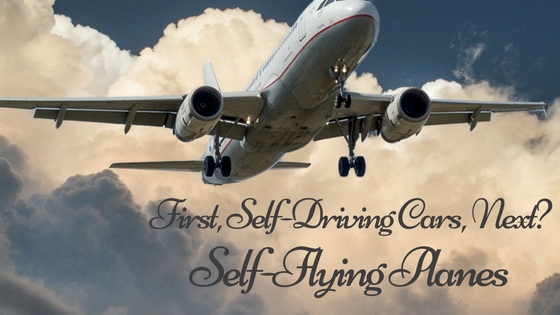By now, most people are accustomed to the concept of self-driving cars, even though they may not feel entirely comfortable riding in them. However, estimates show that millions of self-driving cars could be on the road in a few short years. Other studies reveal that self-driving cars are much safer than those controlled by human drivers. Most of us have become resigned to (or even excited about) the fact that it’s only a matter of time before self-driving cars are prominent on the roads.
However, it was recently revealed that Boeing is planning on testing out self-flying planes. Though the reality of self-driving cars has been widely accepted, this announcement was not met with a positive response. To many people, the idea of a plane flying itself without a human monitoring it is not something they would be comfortable experiencing.
What was the announcement?
This summer, the vice president of product development at Boeing, Mike Sinnett discussed the reality and need for autonomous planes. He predicts that based on the current growth of the airline industry, there will be a need for more than half a million more pilots in twenty years. Sinnett does not believe that airlines will be able to find enough properly trained pilots to fill these roles, leading to the need for self-flying planes. A significant amount of money could also be saved by using artificial intelligence to fly planes as opposed to human pilots; you don’t need to give the AI a paycheck. This reduction of cost could lead to lower ticket costs and the ability to spend money elsewhere.
Other experts confirm that there will likely be a worldwide shortage of pilots. Because of this anticipated issue, Boeing has begun testing out AI flying technology using a simulator. As early as next year, they anticipate being able to test out the technology using actual planes.
What was the response?
The response from the public was not overly encouraging. A recent survey found that only 17 percent of respondents said they’d fly in an autonomous plane. Even though there’s plenty of room for human error, most passengers feel safer having an actual pilot than trusting AI to safely fly the plane.
Safety of self-flying planes?
While the statistics for the increased safety of autonomous cars are clear, it’s not the same for self-flying planes. Since 2007, there hasn’t been a fatal jet crash in the United States, which is drastically different from the statistics on car related fatalities. The people working on self-flying planes fully recognize the high standards already set by airplane safety requirements and they wouldn’t release AI technology for planes until they were sure it was as safe or safer than human pilots.
Why we shouldn’t really worry
Right now, self-flying planes isn’t something people should worry over. It’s taken years for self-driving cars to get to the stage where professional drivers can test them out and they still aren’t commercially available. Autonomous planes will never be put into the skies until they meet all safety requirements. Even once self-flying planes are regularly used, people do not need to seriously worry because planes are already mostly automated. There are a few decisions that pilots must make on their own, but most pilots simply set autopilot once they’re in the air and let the tested technology do its job. Steps have already been taken toward autonomous planes, so it’s only a matter of time before they’re actually in the air.

